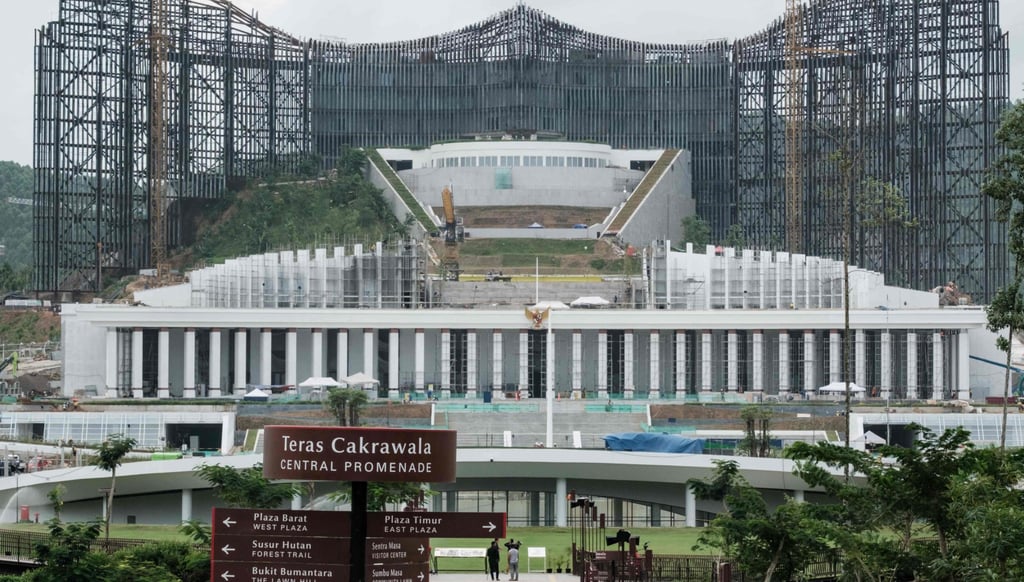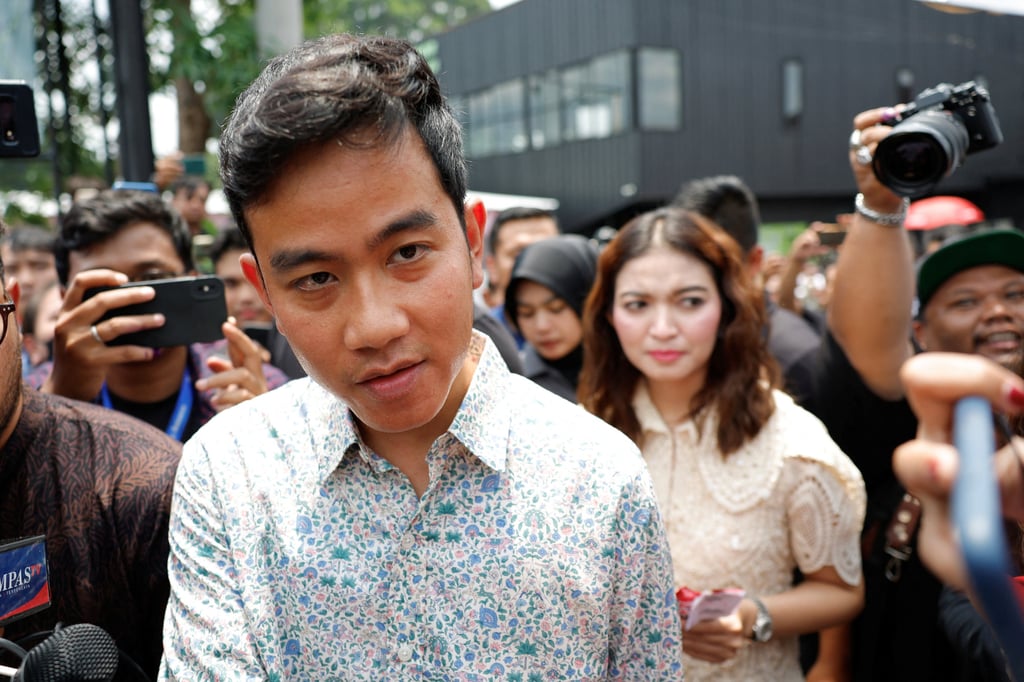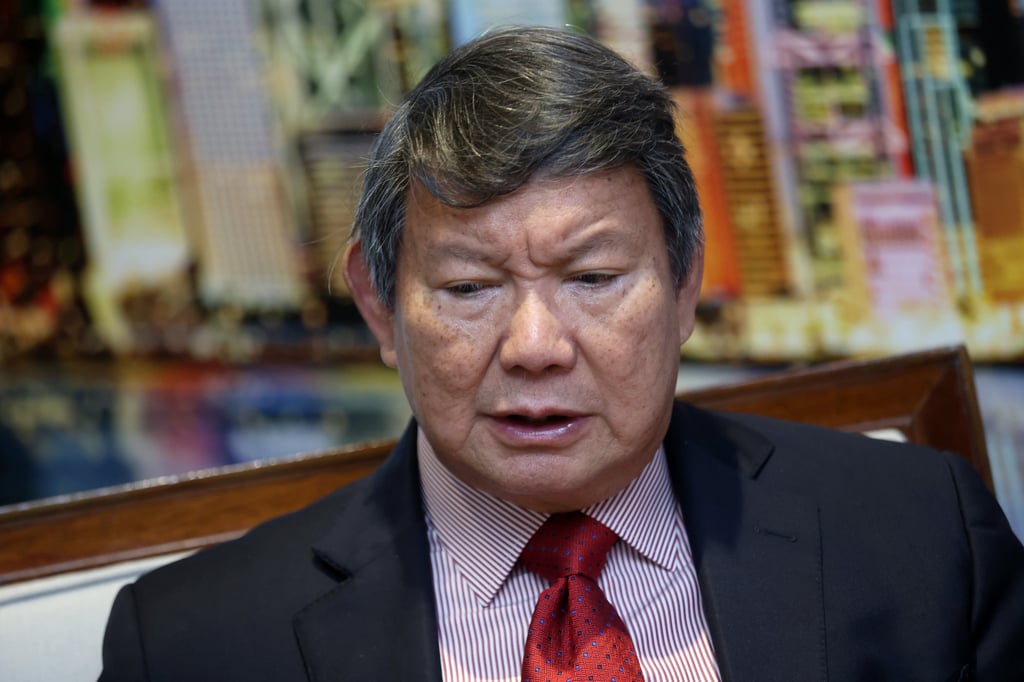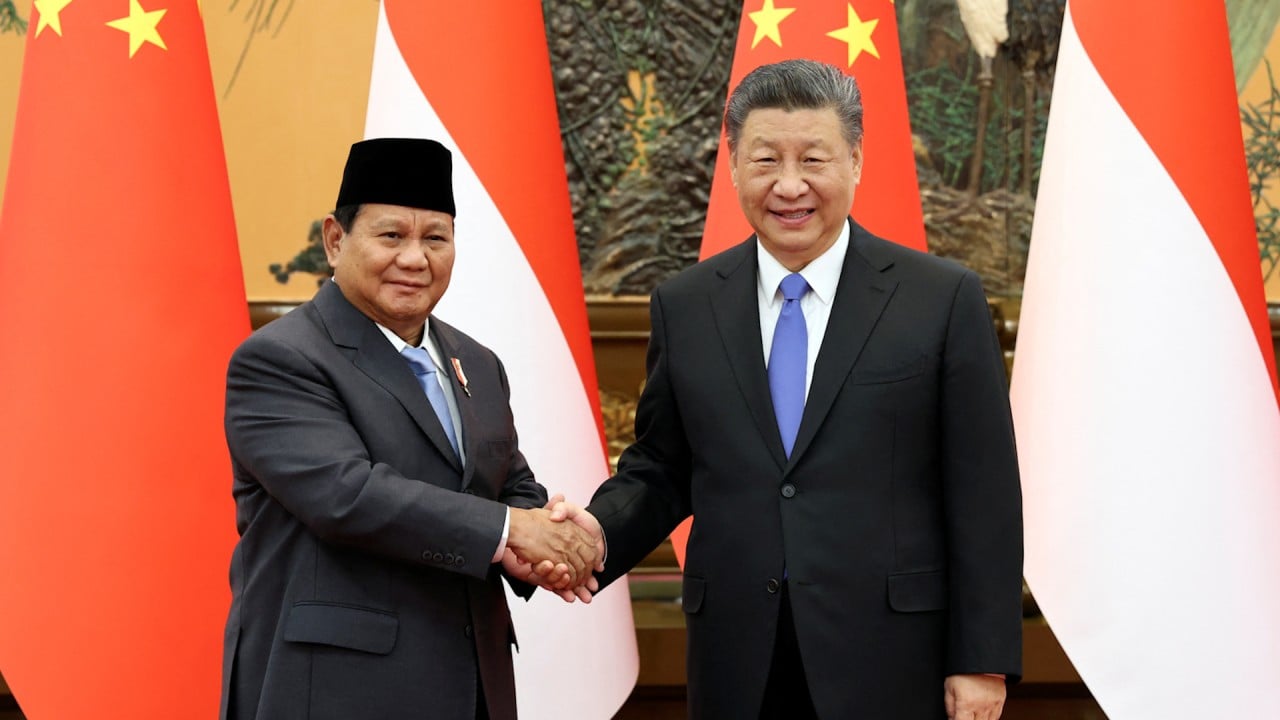Prabowo’s cabinet of connections? Loyalty trumps qualifications for Indonesia’s new leader
As Prabowo Subianto prepares to take over Indonesia’s presidency in October, experts say efforts are already under way to ensure the incoming leader fills his cabinet with loyalists who could help him achieve some of his more ambitious campaign promises.
Incumbent Joko Widodo appointed two members of Prabowo’s inner circle as deputy ministers in his cabinet earlier this month, in a move experts described as “unusual” for an outgoing president.
At a ceremony held at the Presidential Palace on July 18, Widodo swore in Prabowo’s nephew, Thomas Djiwandono, as second deputy finance minister and named Sudaryono, a senior member of Prabowo’s Gerindra party, as deputy agriculture minister.
Thomas – a close Prabowo adviser on fiscal issues and the Gerinda party’s treasurer – said his appointment indicated “continuity” between the outgoing and incoming government.
But analysts say the timing of the appointments speaks volumes about the relationship between Prabowo and Widodo, as well as the direction the president-elect might take in filling government positions.
Prabowo’s landslide victory in February’s general election has largely been attributed to tacit support from Widodo, who is completing his constitutional two-term mandate. Prabowo’s running mate was Widodo’s eldest son, former mayor of Surakarta, Gibran Rakabuming Raka.
While Prabowo was initially expected to continue Widodo’s existing plans, including a US$32 billion project to build a new capital city called Nusantara, analysts say it has become increasingly unclear if he will follow through on those promises.

The president-elect’s campaign promises include a particularly pricey scheme to provide 83 million Indonesian schoolchildren with free meals – a programme expected to cost 71 trillion rupiah (US$4.4 billion) in 2025 and up to US$27 billion annually when fully implemented by 2029.
“Prabowo is a populist leader. He will strive to fulfil his own campaign promises,” said Adhi Priamarizki, a research fellow with the Indonesia programme at Singapore’s S. Rajaratnam School of International Studies.
Making the right cabinet appointments will be pivotal for Prabowo to secure a second term, Adhi said, as it will allow him to effectively implement his agenda and maintain voter support.
He noted that the appointments could also be a way to reassure investors and markets about a smooth transition of power, particularly as questions have been raised about Prabowo and Widodo’s diverging ambitions for the outgoing president’s legacy Nusantara project.
While the public relations between the two appear cordial, local news outlets have reported on speculations over the true nature of their relationship, suggesting potential signs of tension.
Ian Wilson, a senior fellow at Murdoch University’s Indo-Pacific Research Centre in Perth, said it was unusual for a current president to be making “transitional appointments in the last few months of his presidency”.
“I would have to speculate that Jokowi could be trying to generate more goodwill in order to protect himself and protect his broader family interests for when he is no longer president,” said Wilson, referring to Widodo by his popular nickname.

All about loyalty
According to Wilson, the new appointments suggest more political favouritism and nepotism could be in the offing.
“These are not really distinguishable because Gerindra is dominated by members of Prabowo’s extended family,” Wilson said.
“They are also intertwined with the vast business and financial interests of his family as well … with one view being that we will see appointments as a means for his family to reap the harvest of Prabowo’s long-term campaign to become president.”
Prabowo first ran for high office in 2009 as a vice-presidential candidate, and then in 2014 and 2019 to become president. He lost all three times, including twice to Widodo.
Tycoon Hashim Djojohadikusumo, Prabowo’s brother, was closely involved with all three electoral runs as a key adviser and financier.
Thomas, the deputy finance minister appointee, is currently the deputy chief executive officer of Arsari Group, a conglomerate owned by his uncle Hashim whose business dealings span mining, agriculture and commodities.

Rumours swirled that Thomas could even be in the running for the coveted finance minister role, but he denied such claims, stating that his uncle Prabowo was only considering “professional candidates” for the position.
Meanwhile, Sudaryono, the newly-appointed deputy agriculture minister, heads Gerindra’s regional executive board in Central Java – underscoring Prabowo’s tendency to reward political loyalists.
“Trust, chemistry, and loyalty are his priorities when he decides who he will appoint in his next cabinet,” said Arya Fernandes of the Centre for Strategic and International Studies Indonesia. “This trust has not come easy, it has been tested by time.”
Prabowo has maintained a core group of loyal aides who have supported him throughout his tumultuous political career, he said.
Lacking merit?
Political patronage has long been a fixture of Indonesian governance, and Prabowo appears poised to continue this trend. Experts note that Widodo also made several questionable cabinet appointments that elevated candidates lacking relevant qualifications.
“If we reflect on Jokowi’s administration, we can see that maybe some positions were based on merit, where he had technocrats and professionals like [Finance Minister] Sri Mulyani,” Arya said.
“But plenty of positions also reflect the political accommodation to different parties, because the president needs support in the DPR [Indonesia’s House of Representatives].”
This included the appointment of Zulkifli Hasan, chairman of the National Mandate Party, as trade minister – despite his inexperience dealing with trade issues.
Communications Minister Budi Arie Setiadi has also faced intense scrutiny following a major cyberattack last month that crippled government services, with critics calling for his resignation and decrying what they characterise as his politically-motivated appointment.
Budi also serves as the chair of Projo, a volunteer group that backed Widodo’s presidential run, and some have called his position as minister a “giveaway” role for his support of the president.
According to Wilson, Indonesia has long relied on a model of having politically-aligned ministers balanced by more competent deputy ministers.

01:53
Indonesia’s new leader Prabowo Subianto meets Chinese President Xi Jinping in Beijing
Indonesia’s new leader Prabowo Subianto meets Chinese President Xi Jinping in Beijing
He said Prabowo is likely to continue this model because it has been an effective way of balancing the need for competent governance with the “feeding frenzy of the way Indonesian politics works in giving out concessions to political allies”.
“Indonesia has a lot of incredibly experienced and intelligent people who are intellectually capable … and have strong commitment to their country,” Wilson said. “Whether they find their way through the political maze of interests to be recognised for appointment, I am sceptical about.”

